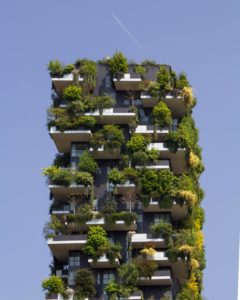Sustainability or AI: What will drive the future of hospitality?
Sanjay Nadkarni is Director of Educational Research at the Emirates Academy of Hospitality Management. His main interests lie in the conversion space of digital, AI and Industry 4.0 within the service industry.
Roel Brinkman is a Senior Lecturer in hospitality and sustainability at the Emirates Academy of Hospitality Management. His personal mission to translate theory into practice to prime the hospitality professionals of tomorrow.
They’re here today, going head to head to discuss AI vs. Sustainability. Following a riveting webinar, we’ve opened the floor to our audience to challenge these seasoned experts.
So Roel, why is sustainability expensive? And what role does AI possibly play in reducing its cost?
I don't think sustainability is necessarily an expensive thing. The bigger question is why is the unsustainable offering so cheap? How come organic yogurt is more expensive than non-organic yogurt? If we want to make people change their behaviour and inspire them to do the right thing, it should be the opposite. IKEA is doing a great job in this space: their vegetarian hotdog is cheaper than the normal hot dog – which shows a real change in perceptions.
Sanjay, how could AI or machine learning or any digital transformation element help us to judge the value of products correctly?
I emphasize value, which is different from price. When we think about the triple bottom line, it’s about environmental sustainability, but also about social and economic sustainability. There there has to be a kind of a balance between these three, and this is where technologies can play a big role through the optimisation of such a complex ecosystem. This is also where AI algorithms can contribute. When it comes to achieving environmental goals, reducing the carbon footprint, what is the economic cost or benefit, what is the social cost or benefit? All three should be factored into the balance sheet. There has to be a mind-set shift in the C-suite, regarding on how this can be made more truly sustainable – it’s not just about ticking the box, following the standards and reporting this as CSR.
But AI in recruitment can feel overwhelming. How can we help AI remove bias against people who are not digitally savvy?
Ethics and AI are a huge issue now and standard programming is often passed off as AI.
If a company sets rules that it doesn’t want to include candidates of a certain category, the system will reject them. Algorithms that have been trained with a lot of datasets in terms of recruitment patterns depend on the data that are fed into the system.
The algorithm may be perfect but it’s fuelled by data and the responsibility for feeding unbiased data into the system lies with the people who are deploying these systems for recruitment. For example, GPT3 can write essays for us, it can compose music for us, and we cannot distinguish, whether it's done by a machine or a human. But when it was put to the test, it gave out biases. Why? Because the data that have been fed into training this model, which has over 175 billion parameters, was already biased in a certain way.
The issue of data bias is something for ethicists to address and it should be part of company policy to not reject genuine qualified candidates who are excluded by the algorithm.
Roel, you said that we need to make our guests' behaviour more sustainable. But most of our guests arrive by plane not by train…
I think we all have a responsibility to educate our guest as co-creators of greatness or improvements to be made. It may seem utopian in a luxury high-end property, where service availability is widely rolled out and goes against sustainable initiatives, but it’s not unattainable. We need to strengthen our relationship with OTAs like airlines, to compensate their behaviour. Although Co2 is still a highly debated topic, it raises awareness. We pass the responsibility back to people and we can offer discounts to those who behave well. This kind of positive reinforcement propels people to do the right thing. We’ve see these for years in our hotel rooms, in lighting, in towel and water usage, but it could be enhanced in the pre- and post- stages of the hotel visit. The majority of environmental damage is done before and after the hotel visit. We all have an individual responsibility for our planet and environment, but we also work in industries and in businesses that are much bigger than ourselves.
That said, Roel, how can we as individuals, as part of an industry, understand the balance between individual responsibility and societal responsibility?
We need to walk the talk, to create the Thunberg Effect. The triple bottom line is not only top down. It is bottom up as well. So, if you have great ideas, if you have a great way of moving forward, your line manager will listen, it will reach top management and improvement will take place.
Generation Z is very sensitive about how businesses are run, so wise companies step up their game, listen to what their employees like and tune into initiatives from youngsters who are entering the market. The professionals and guardians of tomorrow shouldn’t feel that their voice is not being heard. You might be able to inspire people, you might get people on board but it starts with you as an individual. Finger-pointing has never ever led to a better performance.

Sanjay, how will AI and data help us preserve and conserve our water and help sustainability drive it forward more?
IoT sensors gather data on water tables around the world or in a particular area – the quantity and quality of water can be gauged through these technologies. These in turn feed our water conservation and purification policies.
To give you a simple example, when we check into a hotel room and take a shower, we're not familiar with the temperature of the water. So, we keep fiddling and wasting water. Wouldn't it be great if our profile were on our preference for temperature, and the moment we turn on the tap, we get the desired temperature? This is not a fantasy. I have partnered with start-ups that are actually doing this – there’s a trade-off with GDPR and privacy, but a lot could be done.
How has your Academy utilized AI to teach practical hospitality modules during the COVID-19 pandemic?
We didn't use AI to deliver the courses but we did include it in the courses. For example, I teach business statistics on the MBA programme. It’s not really an exciting subject to teach face-to-face, so imagine doing this online. That’s when we pivoted and partnered with Data Robot. They have a full Cloud-based platform. I was very lucky to get access for my students and for myself. About 40-50% of the course focused on AI applications within hospitality, and this was done in a very interactive way.
Moving forward, what can AI can do in the actual learning space? It can predict whether the class, how many of the students will stay online, how many will return because the class is boring, or engaging.
Back to you, Roel: How can we get tourists to contribute to developing economies and lessen their impact?
Companies that have been certified by Green Globe are given guidance on how to benefit the community and the environment in situ where their tourism business practices are located.
Everyone in a local community should benefit from the tourist’s presence: not just the hotel chain or the property, but also the supporting communities. Once that touristic presence is certified, we can rest assured that the community will benefit from that touristic activity in the region. Then the question remains: Where would you put your money then as a tourist? That's another responsibility you could take. Would you buy tours and souvenirs onsite or would you rather spend your money on locals who are not necessarily within the premises but outside. Would you rather spend your money there and let them benefit from your presence?
Talking of humanity – Sanjay, will AI be used to reach the best level of guest experience or to replace human beings?
AI can never replace human beings. What it can do, is help the hospitality industry to automate routine tasks, make predictions about guest behaviour, and better equip the hotel workforce to provide excellent service and memorable experiences for guests.
AI can also help mitigate the environmental impact by optimising resource usage. When I say AI, I mean the entire ecosystem: Industry, 4.0 IoT, AI... the whole panorama, and none of this should be viewed as a threat. AI’s capacities should be recognized and leveraged in any work role. So instead of working hard, hospitality professionals simply need to work smart.
We hope you enjoyed this hospitality head-to-head! Check out the full webinar: AI vs. Sustainability at Hosco.com and feel free to reach out to Roel Brinkman and Sanjay Nadkarni if you want to talk more about the future of hospitality!




